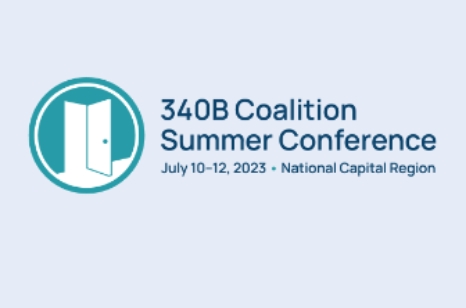As drug manufacturers request more oversight and scrutiny surrounding the 340B program intensifies, compliance with regulations must be your top priority when participating in the 340B program. Recently, 340B eligible covered entities utilizing contract pharmacies have become a primary target for drug manufacturers and Pharmacy Benefit Managers (PBM’s) seeking to stifle the overall program under the guise of preventing duplicate discounts. As such, now is a good time to evaluate the health of your contract pharmacy program.
Self-auditing and ensuring ongoing compliance of your 340B program
Are you routinely self-auditing contract pharmacy claims? One of the requirements for FQHC’s to participate in the 340B program is to maintain auditable records that show 340B eligible prescriptions were only dispensed to qualifying patients. HRSA has provided guidance regarding eligibility:
- Outpatient status only—in most cases, all FQHC patients are outpatient
- The FQHC maintains healthcare records for their patients
- The patient is seen by a provider within the FQHC’s four walls of the registered address in the HRSA/OPAIS database
- If a patient is initially seen within the FQHC’s four walls of the registered address but is referred to an outsider provider, the FQHC documents the continuity of care in order to capture referral prescriptions filled at the contract pharmacy
In order to ensure ongoing compliance, FQHC’s should routinely audit contract pharmacy claims and retain audit records as part of their 340B program. Audit records should contain all prescription dispenses, 340B eligible and non-340B eligible, to illustrate prescriptions were dispensed within the eligibility criteria above. Most audits include a set of random prescription claims that were dispensed within a defined audit period (ie. monthly, quarterly). FQHC’s should document contract pharmacy auditing processes, including frequency of audits, within their 340B Policies and Procedures. If you work with a 340B third party administrator (TPA) they should be able to provide claims data and keep you audit ready.
340B savings from your contract pharmacies
Are you sure your contract pharmacies are producing 340B savings? Surprisingly, many FQHC’s do not confirm their contract pharmacies generate savings on a regular basis. Some may even continue to work with contract pharmacies that, after all fees, cost the FQHC more than the 340B savings. The purpose of registering a 340B contract pharmacy is two-fold: first to provide patients access to medications via a charity program and secondly to capture savings from eligible prescriptions and ultimately use the savings to provide more services to patients. You should regularly evaluate your contract pharmacies to ensure each is producing 340B savings and/or provides access to areas where patients need discounted medications. If a contract pharmacy does neither, you should terminate the relationship on the HRSA/OPAIS database to reduce liability. In addition to evaluating existing contract pharmacies, if a new pharmacy opens near your clinic, it is worth assessing if the pharmacy is filling enough prescriptions written by your providers. With enough prescriptions, a pharmacy may generate 340B savings to justify registering as a 340B contract pharmacy with HRSA/OPAIS.
Giving 340B savings back to your patients
Are you using contract pharmacy 340B savings to supplement your patients’ prescription benefits? Sections 8 and 9 of the Uniform Data System (UDS) report are where FQHC’s can provide cost metrics regarding their 340B program and how 340B savings are being utilized. One way to give 340B savings back to patients is through supplementing prescription benefits based on a sliding fee discount schedule (SFDS). Savings generated from 340B eligible dispenses at contract pharmacies can be used to pay for part, or all, of a prescription for a patient in greater need. Reports showing 340B savings being utilized to pay for prescription benefits should also be part of the 340B program record.
As you navigate through the complexities of the 340B program, it is imperative to put a system in place that focuses on continued compliance and audit preparedness while ensuring your patients are benefitting from each contract pharmacy relationship. Working with a 340B partner that is transparent and vested in your program’s success will help safeguard against added liability while maximizing the financial benefit to your community.
About 340Best
340Best offers Third-Party Administration, a Self-Audit Compliance System, and Audit & Consulting Services. For more information and a complimentary program analysis please contact 340Best at info@340best.com or 845-705-6677.









